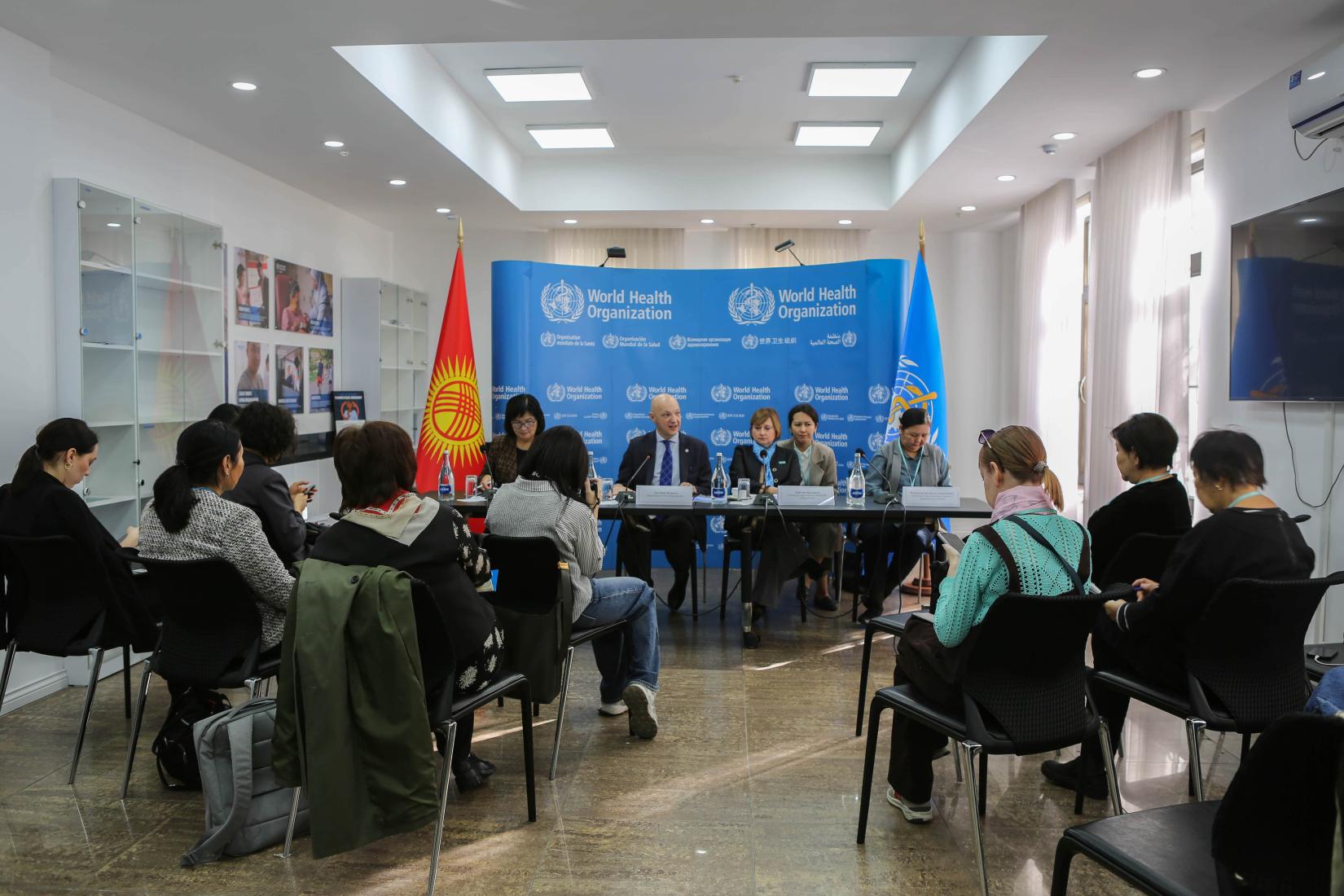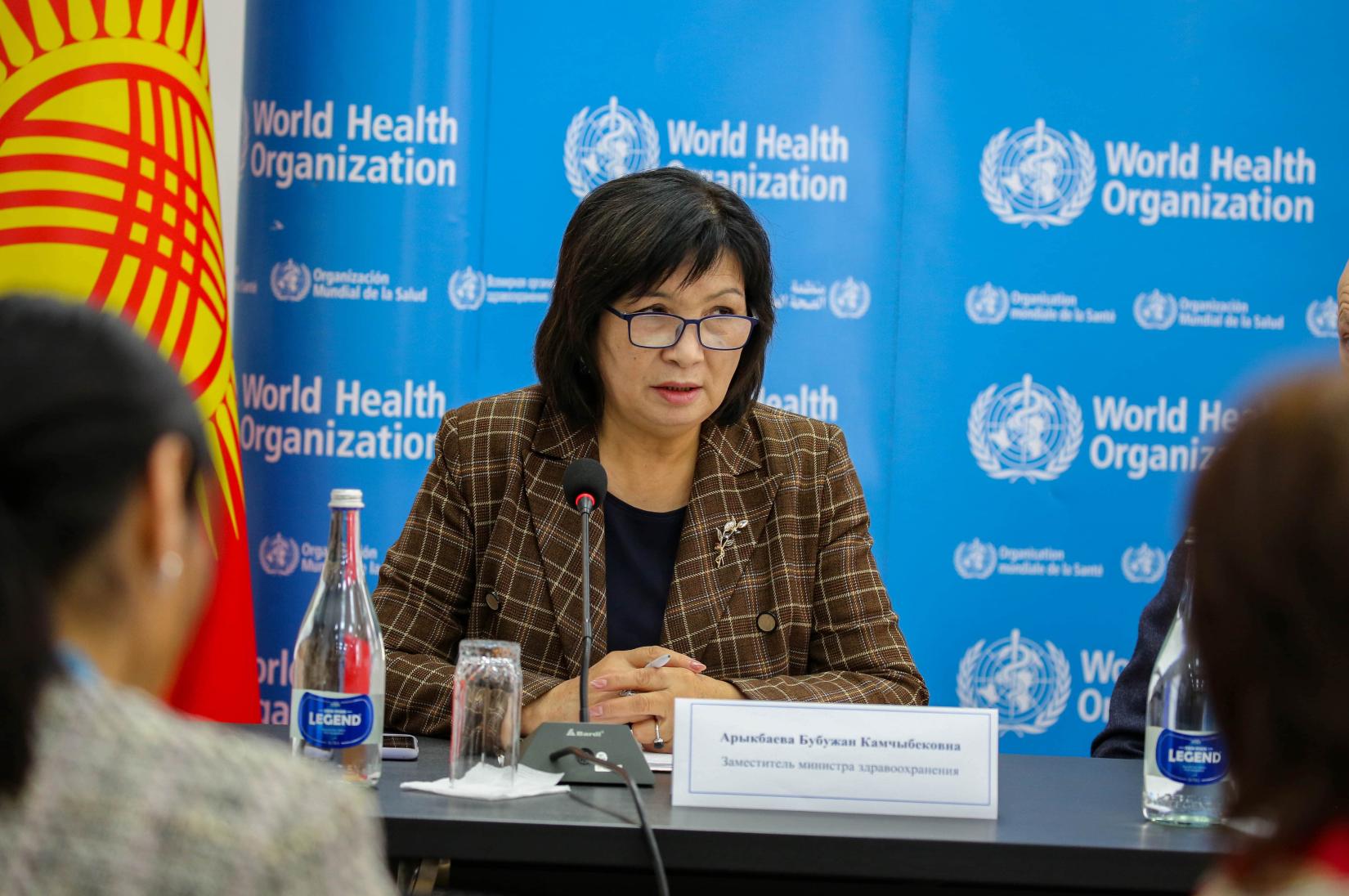Protecting Children and Families in Kyrgyzstan from Lead Exposure
11 November 2024
FOR IMMEDIATE DISSEMINATION
The Ministry of Health, World Health Organization (WHO) Kyrgyzstan, and UNICEF Kyrgyzstan are teaming up for International Lead Poisoning Prevention Week, 20-26 October 2024. The campaign highlights the dangers of lead exposure, especially for children, and promotes efforts to eliminate lead paint and other harmful sources in Kyrgyzstan.

Lead poisoning has been a serious health issue for centuries, and today, WHO identifies lead as one of 10 chemicals of major public health concern, emphasizing that no safe level of lead exposure exists.
Lead is a highly toxic metal that affects multiple organ systems and is particularly harmful to young children, pregnant women, and workers exposed to lead in their daily lives. According to the Institute for Health Metrics Evaluation (IHME), more than 1.5 million deaths worldwide were attributed to lead exposure in 2021, with millions more suffering from long-term health effects such as reduced intellectual capacity, cardiovascular disease, and kidney damage.
As of January 2024, 48% of countries have established legally binding controls on lead paint law, and Kyrgyzstan is proud to be among them, demonstrating its commitment to protecting public health and preventing lead poisoning. However, lead exposure remains a concern in Kyrgyzstan, with sources such as lead-acid batteries, old paint, plumbing, and industrial dust. Lead is also found in products like paints, ceramics, toys, cosmetics, and can contaminate drinking water through old plumbing systems.

“Recognizing the need for efforts to address lead poisoning, the Ministry of Health is actively working to raise public awareness and implement measures to reduce lead exposure. The country has launched a large-scale study of blood lead levels in preschool children. The results of the study will help to create a monitoring system and public health programs aimed at preventing the negative impact of lead on children's health,” said Bubuzhan Arykbaeva, Deputy Minister of Health of the Kyrgyz Republic.
“Lead exposure is a silent threat to the health and well-being of our children and future generations, yet it can be completely prevented through awareness and proactive action,” said Dr Liviu Vedrasco, WHO Representative to Kyrgyzstan. “The International Lead Poisoning Prevention Week reminds us of the importance of multisectoral collaboration. By working together - government agencies, civil society, the private sector, and international partners - we can eliminate lead as a public health threat.”
“Recognizing that children are the most vulnerable to lead poisoning, UNICEF and USAID launched a Global Partnership for a Lead-Free Future to acknowledge lead poisoning as a significant issue and to take action to prevent lead exposure. In Kyrgyzstan, UNICEF invests in public health workers to guard children’s health from the impact of environmental pollution. Joint and strategic efforts will help us to stop lead poisoning”, said Cristina Brugiolo, UNICEF Deputy Representative.
***
For more information, please contact:
Almaz Zhumaliev, WHO Country Office in Kyrgyzstan, 0550701712, eukgzmedia@who.int


